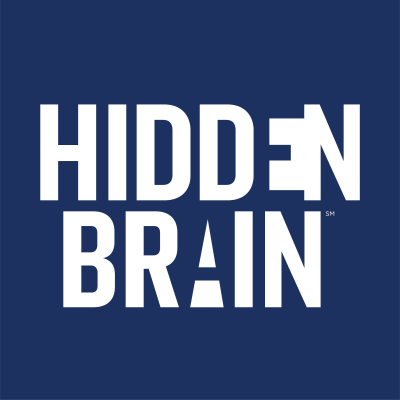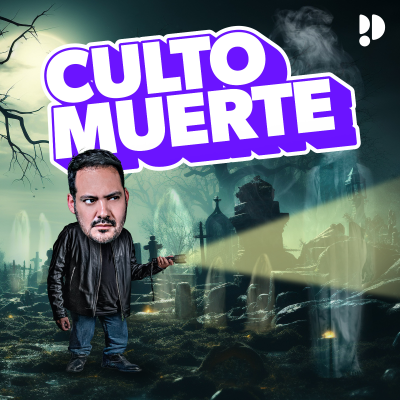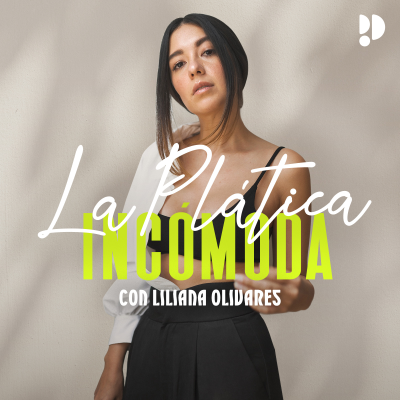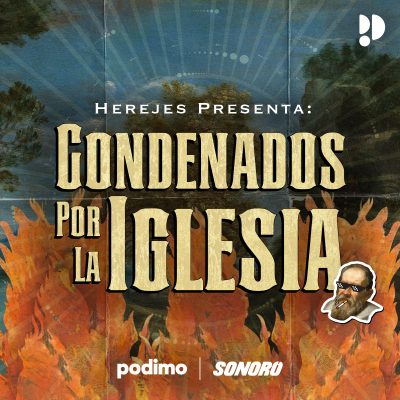
Hidden Brain
inglés
Cultura y ocio
Empieza 7 días de prueba
$99 / mes después de la prueba.Cancela cuando quieras.
- 20 horas de audiolibros al mes
- Podcasts solo en Podimo
- Podcast gratuitos
Acerca de Hidden Brain
Why do I feel stuck? How can I become more creative? What can I do to improve my relationships? If you’ve ever asked yourself these questions, you’re not alone. On Hidden Brain, we help you understand your own mind — and the minds of the people around you. (We're routinely rated the #1 science podcast in the United States.) Hosted by veteran science journalist Shankar Vedantam.
Todos los episodios
597 episodiosWhy You're Smarter Than You Think
From the time we're schoolchildren, we're ranked and sorted based on how smart we are. But what if our assumptions about intelligence limit our potential? This week, we revisit a favorite 2022 conversation with cognitive scientist Scott Barry Kaufman [https://scottbarrykaufman.com/bio/], who proposes a more expansive notion of what it means to be "smart." Then, in the latest installment of Your Questions Answered, psychologist James Cordova [https://www.clarku.edu/faculty/profiles/james-cordova/] answers listener questions on accepting our romantic partners as they are. Our next stops on Hidden Brain’s live tour are just weeks away! Join Shankar for an evening of science and storytelling in Philadelphia on March 21 [https://www.ensembleartsphilly.org/tickets-and-events/ensemble-arts-philly-presents/hidden-brain-perceptions-tour] or New York City on March 25 [https://www.ticketmaster.com/event/0300635CCCC30F08]. He’ll be sharing seven key psychological insights from his first decade hosting the show. And stayed tuned for more tour stops to be announced later this spring! If you missed our original series with James Cordova, listen to How to Fix Your Marriage, Part 1 [https://www.hiddenbrain.org/podcast/love-2-0-how-to-fix-your-marriage-part-1/] and How to Fix Your Marriage, Part 2 [https://www.hiddenbrain.org/podcast/love-2-0-how-to-fix-your-marriage-part-2/]. Episode illustration by ghariza mahavira for Unsplash+ [https://unsplash.com/@ghariza_/illustrations] Hosted by Simplecast, an AdsWizz company. See pcm.adswizz.com [https://pcm.adswizz.com] for information about our collection and use of personal data for advertising.
Coming Clean
Last week, we talked with psychologist Leslie John [https://www.lesliekjohn.com/] about the costs of keeping secrets. Today, Leslie returns with a look at the psychological power of self-disclosure. She says the moments of oversharing that we often consider "TMI" can actually strengthen our relationships. Then, in the second half of the show, listeners share their thoughts and questions about the expectations we put on modern marriages. Psychologist Eli Finkel [https://www.kellogg.northwestern.edu/academics-research/faculty/finkel_eli/] returns for the latest installment of our series "Your Questions Answered." Our next stops on Hidden Brain’s live tour are just weeks away! Join Shankar for an evening of science and storytelling in Philadelphia on March 21 [https://www.ensembleartsphilly.org/tickets-and-events/ensemble-arts-philly-presents/hidden-brain-perceptions-tour] or New York City on March 25 [https://www.ticketmaster.com/event/0300635CCCC30F08]. He’ll be sharing seven key psychological insights from his first decade hosting the show. And stayed tuned for more tour stops to be announced later this spring! If you missed our original conversation with Eli Finkel, you can find it here [https://www.hiddenbrain.org/podcast/reimaginingourrelationships/]. And here's where you can check out his podcast, "Love Factually." [https://www.lovefactuallypod.com/] Episode illustration by Bekeen Co. for Unsplash+ [https://unsplash.com/illustrations/a-couple-of-men-sitting-next-to-a-fire-RuNlrUdxPB0] Hosted by Simplecast, an AdsWizz company. See pcm.adswizz.com [https://pcm.adswizz.com] for information about our collection and use of personal data for advertising.
Keeping Secrets
We all carry secrets, from harmless omissions to life-changing truths. But secrecy isn’t neutral: hiding takes mental work and can harm our health and relationships. In this week’s show, and in our episode next week, psychologist Leslie John [https://www.lesliekjohn.com/]explores the costs of concealment — and how opening up can give us more mental space and deepen our connections. After you listen to today's episode, check out our Hidden Brain+ conversation called "When to Hide the Truth." In that episode, we talk with Leslie about when and where it may be best to withhold information. If you're not yet a Hidden Brain+ subscriber, you can hear that episode with a free seven-day trial -- just go to support.hiddenbrain.org [support.hiddenbrain.org] or apple.co/hiddenbrain [apple.co/hiddenbrain]. Thanks for listening! Our next stops on Hidden Brain's live tour are coming soon! Join Shankar in Philadelphia on March 21 or New York City on March 25. More info and tickets are at hiddenbrain.org/tour [https://www.hiddenbrain.org/tour/]. Episode illustration by Dadi Prayoga for Unsplash+ [https://unsplash.com/illustrations/person-holding-a-mask-inside-a-blue-box-wTPoI1wMvkM]. Hosted by Simplecast, an AdsWizz company. See pcm.adswizz.com [https://pcm.adswizz.com] for information about our collection and use of personal data for advertising.
You 2.0: Trusting Your Doubt
We conclude our month-long You 2.0 series with a look at the hidden power of doubt — not as weakness or indecision, but as a tool that helps us make better choices and navigate an uncertain world. Researcher Bobby Parmar [https://www.darden.virginia.edu/faculty-research/directory/bidhan-l-parmar] explores how doubt can sharpen judgment, and makes a case for why the ability to sit with uncertainty may be one of the most important skills of all. Then, in our latest installment of "Your Questions Answered," Emily Falk [https://www.asc.upenn.edu/people/faculty/emily-falk-phd] answers listeners' questions about defensiveness, and offers insights into how we can strengthen our ability to give and receive feedback. In this episode, you'll learn: *Why uncertainty and doubt feel so uncomfortable to our brains. *Why intuition can lead us astray, and how to know when doubt can help you make better decisions. *How the "pursue," "protect," and "pause and piece together" systems in our brains shape our decision making. *How stress can affect these brain systems and alter how we make decisions. *How our desire to avoid blame makes it more difficult to listen to our doubt. *Why we tend to prefer decisive leaders — and why this tendency doesn't always serve us well. *What researchers have learned about how experts and novices use doubt differently to navigate complex situations. Hidden Brain is coming to Philadelphia and New York City! Join us in March at the latest stops on our live tour. More info and tickets at hiddenbrain.org/tour [https://www.hiddenbrain.org/tour/] Episode illustration by Getty Images for Unsplash+ [https://unsplash.com/illustrations/man-with-question-mark-and-two-option-for-solving-problem-vector-illustration-cartoon-young-guy-with-dilemma-sitting-at-desk-with-lamp-employee-or-student-making-decision-of-creative-situation-PJVzOyfPAsQ] Hosted by Simplecast, an AdsWizz company. See pcm.adswizz.com [https://pcm.adswizz.com] for information about our collection and use of personal data for advertising.
You 2.0: The Practice of Patience
Patience can sometimes feel like a lost art, particularly in a culture that prizes competition and the idea of "failing fast." But psychologist Sarah Schnitker [https://psychologyneuroscience.artsandsciences.baylor.edu/person/sarah-schnitker-phd] says patience is a vital skill for success in both our personal and professional lives. We talk with Sarah about the difference between patience and passivity, and how to train ourselves to be more patient. Then, in our latest installment of "Your Questions Answered," Jennifer Tosti-Kharas [https://www.babson.edu/about/our-leaders-and-scholars/faculty-and-academic-divisions/faculty-profiles/jennifer-tosti-kharas.php] responds to listeners' questions about how to find a calling, and how to set one aside if it's no longer serving you well. In this episode, you'll learn: *Why our brains dislike uncertainty so much, and how this can lead to impatience and hasty decisions. *The three different types of patience that researchers have identified — and how each one can affect your life. *How to strengthen your own ability to practice patience. *The relationship between purpose and patience. *How impatience affects our mental and physical health. Episode illustration by Gustopo Galang for Unsplash+ [https://unsplash.com/illustrations/a-traveler-is-disappointed-by-a-canceled-flight-FkOoGsh-R5U] Hosted by Simplecast, an AdsWizz company. See pcm.adswizz.com [https://pcm.adswizz.com] for information about our collection and use of personal data for advertising.
Elige tu suscripción
Premium
20 horas de audiolibros
Podcasts solo en Podimo
Podcast gratuitos
Cancela cuando quieras
Empieza 7 días de prueba
Después $99 / mes
Empieza 7 días de prueba. $99 / mes después de la prueba. Cancela cuando quieras.





































